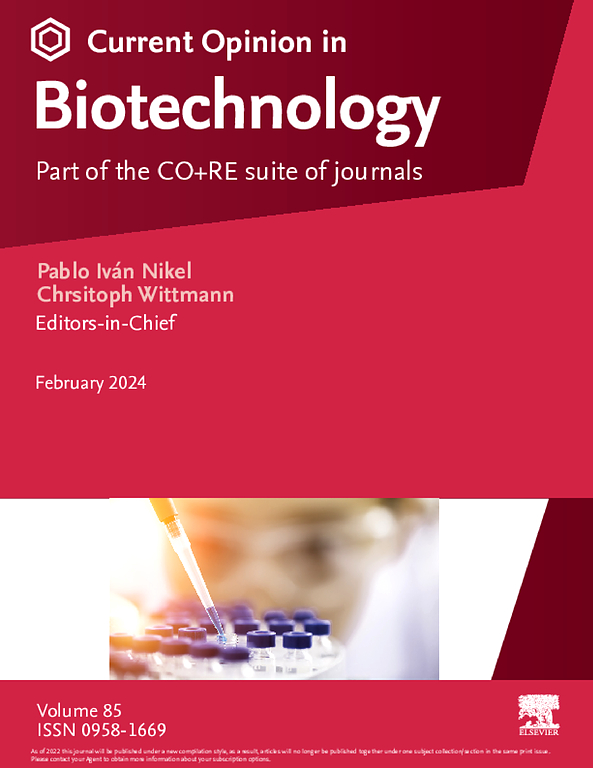人乳低聚糖合成中的糖基转移酶:结构机制与合理设计
IF 7.1
2区 工程技术
Q1 BIOCHEMICAL RESEARCH METHODS
引用次数: 0
摘要
人乳寡糖(HMOs)通过其多功能生物活性特性在婴儿健康中起着关键作用。合成生物学的最新进展彻底改变了HMO生物合成的微生物平台,糖基转移酶(GTs)成为推动酶促乳糖糖基化以产生多种低聚糖的不可或缺的生物催化工具。本文系统分析了GT的结构生物学,通过晶体学研究阐明了其保守结构域和催化机制。我们总结了当前用于增强GT功能的优化策略,包括增强溶解度、提高催化效率和通过结构导向的合理设计进行底物特异性工程。新兴的深度学习算法在GT修改和从头设计方面展示了变革潜力,为克服工业规模HMO合成的瓶颈提供了创新的解决方案。这些方法为碳水化合物活性酶的精确工程建立了框架。本文章由计算机程序翻译,如有差异,请以英文原文为准。
Glycosyltransferases in human milk oligosaccharide synthesis: structural mechanisms and rational design
Human milk oligosaccharides (HMOs) play a pivotal role in infant health through their multifunctional bioactive properties. Recent advances in synthetic biology have revolutionized microbial platforms for HMO biosynthesis, with glycosyltransferases (GTs) emerging as indispensable biocatalytic tools that drive enzymatic lactose glycosylation to generate diversified oligosaccharides. This review systematically analyzes GT structural biology, elucidating conserved domains and catalytic mechanisms through crystallographic studies. We summarize contemporary optimization strategies for enhancing GT functionality, including solubility enhancement, catalytic efficiency improvement, and substrate specificity engineering via structure-guided rational design. Emerging deep learning algorithms demonstrate transformative potential in GT modifications and de novo design, providing innovative solutions to overcome bottlenecks in industrial-scale HMO synthesis. These approaches establish a framework for the precision engineering of carbohydrate-active enzymes.
求助全文
通过发布文献求助,成功后即可免费获取论文全文。
去求助
来源期刊

Current opinion in biotechnology
工程技术-生化研究方法
CiteScore
16.20
自引率
2.60%
发文量
226
审稿时长
4-8 weeks
期刊介绍:
Current Opinion in Biotechnology (COBIOT) is renowned for publishing authoritative, comprehensive, and systematic reviews. By offering clear and readable syntheses of current advances in biotechnology, COBIOT assists specialists in staying updated on the latest developments in the field. Expert authors annotate the most noteworthy papers from the vast array of information available today, providing readers with valuable insights and saving them time.
As part of the Current Opinion and Research (CO+RE) suite of journals, COBIOT is accompanied by the open-access primary research journal, Current Research in Biotechnology (CRBIOT). Leveraging the editorial excellence, high impact, and global reach of the Current Opinion legacy, CO+RE journals ensure they are widely read resources integral to scientists' workflows.
COBIOT is organized into themed sections, each reviewed once a year. These themes cover various areas of biotechnology, including analytical biotechnology, plant biotechnology, food biotechnology, energy biotechnology, environmental biotechnology, systems biology, nanobiotechnology, tissue, cell, and pathway engineering, chemical biotechnology, and pharmaceutical biotechnology.
 求助内容:
求助内容: 应助结果提醒方式:
应助结果提醒方式:


